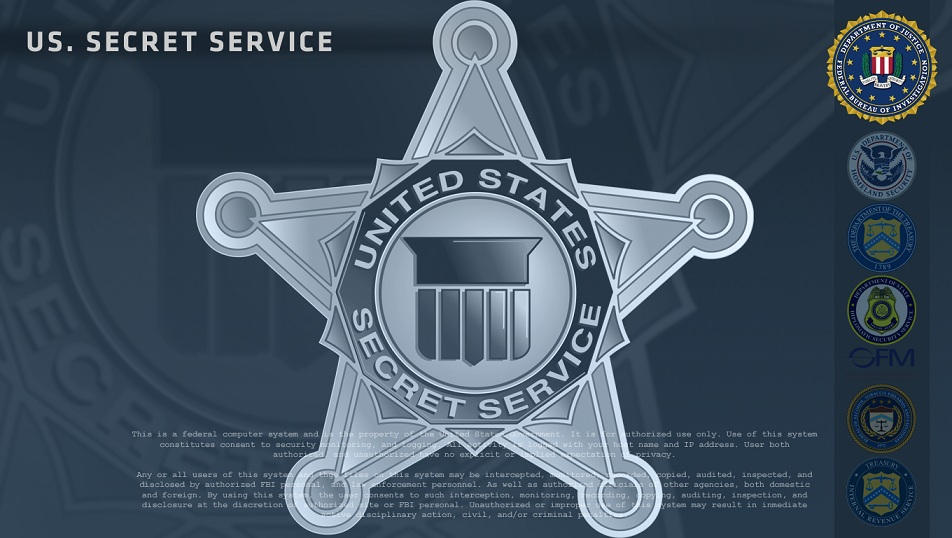For today’s Invoking IP article,
we’re going to actually move away from intellectual property law. Rather than talking about IP in the
gaming industry, I want to talk about two different RPG makers who were themselves
in the courts and who helped move of clarify the law.[1] In Steve
Jackson Games, Inc. v. United States Secret Service, the Fifth U.S.
Circuit considered what exactly constitutes an electronic interception of information.[2] In TSR,
Inc. & Subsidiary v. Commissioner of Internal Revenue, the U.S. Tax
Court considered whether or not research for RPG design qualified as a
tax-exempt business expense.[3] Both cases are fascinating, but the
Steve Jackson games case is more fascinating, so we will begin there. I’ll follow up tomorrow with the skinny
on TSR’s taxes.
Who’s Watching? Big Brother or the Illuminati?
During the 1980s, Steve Jackson Games (SJG) operated the an
electronic bulletin
board system called “ILLUMINATI.” SJG’S main purposes were to post
business announcements, to facilitate playtesting of forthcoming releases, and
to communicate with customers and freelance writers. But, as a part of that, everyone needed an email
account. During the late 1980s,
when this case was decided, email was still a pretty big novelty and nobody
knew exactly how to deal with privacy in electronic communications.[4]
Someone had copied and
distributed information about the Bell Company’s emergency call system. Back then, we’d just broken
up the telephone monopoly, so information about the Bell Company’s
emergency call system would let people do things like place free calls when
they should be paying. In a time
when all Internet connections (or at least the vast majority of them) were
dial-ups, this was useful information indeed.
The Secret Service had reason to
believe that there was a copy of this stolen file in an email inbox hosted on
the ILLUMINATI server. So, the
Secret Service got a warrant to search SJG and the home of its bulletin board
system network administrator. The
Secret Service seized a bunch of stuff, including the computer that hosted the
ILLUMINATI server. On that
computer were 162 sent but unopened emails.
The district court found that the
Secret Service broke the law by seizing the electronic communications, but not
for opening and reading them.[5] The Secret Service could read the
messages because it didn’t intercept
them. You can only intercept a
communication if you read/hear it contemporaneously with the message being
sent.[6] In the case that originally defined intercepting
a communication, the court had found that a seized audio tape was not an
interception because law enforcement got their hands on the tape after it had
been recorded (they still needed a search warrant though). Email messages were trickier. Clearly the message had been drafted
and sent, but the messages were unopened.
So, now a nice panel of three judges on the Fifth Circuit who probably
knew next to nothing about computers had to decide if the Secret Service
“intercepted” something that had been sent but not yet delivered. SJG believed that because the messages
hadn’t been delivered, it made the violation even worse (and would have
entitled SJG to even more money).
 |
| Credit: Deviant ART/lmd1984. Used with permission. |
Unfortunately for SJG, the § 2510 of the Electronic
Communications Privacy Act (18 U.S.C.) didn’t say anything about protecting
messages that were “stored.” So,
the message couldn’t be intercepted because it was being stored rather than
being in transit. The court noted:
The E-mail in issue was in “electronic storage”. Congress’ use of the word “transfer” in the definition of “electronic communication”, and its omission in that definition of the phrase “any electronic storage of such communication” (part of the definition of “wire communication”) reflects that Congress did not intend “intercept” to apply to “electronic communications” when those communications are in “electronic storage.”[7]
So, that was that. SJG may have had its records and
computers and several of its bulletin board system’s emails stolen by the
Secret Service, but they weren’t “intercepted.” You can’t intercept things that have already been delivered.
Where do things stand today? Well, if the message has been
in storage (read or unread) for 180 days or less, the government needs a court
order to get at your communications (18 U.S.C. § 2703(a). They also (usually[8])
have to inform the recipient they are getting copies of her emails. If it’s been there
longer than 180 days, the government can just subpoena it if they inform the
recipient. They need not tell the
recipient at all if they have a court order after 180 days. (18 U.S.C. § 2703(b).
Bottom line: You’ve got some
limited privacy in your email for 180 days and almost none after. If you really want your email to remain
private, download it off of server computers at least every 180 days.[9]
[1] Alas, not to
their benefit.
[2] 36 F.3d 457
(1994).
[3] 96 T.C. No.
44 (1991).
[4] Arguably, we
still don’t. Or, maybe we know,
but we just choose not to protect their privacy. For more information see the Electronic
Communications Privacy Act of 1986 and any and all revelations about how
the National Security Agency is spying on your email.
[5] If that
sounds Kafkaesque, it’s because it is.
[6] U.S. v. Turk, 526 F.2d 654 (5th Cir.), cert. denied 429 U.S. 823 (1976).
[7] 36 F.3d at
462-63.
[8] Patriot
Act. Shocker, I know.
[9] “But wait,
Boyd! A file can’t really ever be
completely deleted from a computer.
There’s still a recoverable record there.” “Yep. There
is. And it’s also open for the
taking. Want total privacy? Return to snail mail.”


No comments:
Post a Comment